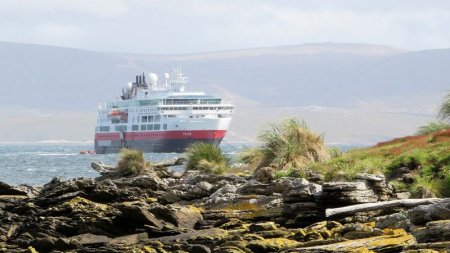The Falkland Islands War, which took place in 1982, was a significant military conflict between Argentina and the United Kingdom over the sovereignty of the Falkland Islands, South Georgia, and the South Sandwich Islands. This war had lasting implications for both nations and the geopolitical landscape of the region. This article aims to explore the causes, major events, and consequences of the Falkland Islands War.
The dispute over the Falkland Islands can be traced back to the 18th century when Britain established its presence in the region. Argentina has long claimed sovereignty over the islands, which they refer to as the Islas Malvinas. Tensions simmered for years until they erupted into open conflict in 1982. Argentina’s military junta, facing internal issues, saw an opportunity to rally public support by seizing the islands. This aggressive move was met with staunch resistance from the British government, leading to armed conflict.
The Falkland Islands War can be divided into three main phases: the Argentine invasion, the British response, and the eventual recapture of the islands by the British forces. In April 1982, Argentine forces landed on the Falkland Islands, quickly overwhelming the small British garrison stationed there. The invasion triggered a swift response from the UK, which dispatched a task force to the South Atlantic. The subsequent naval battles, including the sinking of the Argentine cruiser General Belgrano, marked a turning point in the conflict. British forces successfully recaptured the islands in June 1982 after intense land, sea, and air battles.
The Falkland Islands War had significant consequences for both Argentina and the UK. For Argentina, the defeat had profound political implications, leading to the fall of the military junta and the restoration of democracy. The conflict also strained Argentina’s relationship with neighboring countries, impacting regional politics. In the UK, the victory bolstered national pride and strengthened the leadership of Prime Minister Margaret Thatcher. It also highlighted the importance of maintaining a capable military force.
The war’s geopolitical impact extended beyond the immediate parties involved. The conflict showcased the power projection capabilities of both the UK and Argentina, leading to increased military spending in the region. It also raised questions about the role of international diplomacy and the importance of self-determination for the Falkland Islanders.
Furthermore, the war highlighted the importance of strategic alliances. The UK received support from its NATO allies, demonstrating the value of international cooperation in times of crisis. The conflict also prompted the British government to reassess its defense priorities and invest in modernizing its armed forces.
The Falkland Islands War was a defining moment in history, with lasting implications for Argentina, the UK, and the broader international community. The conflict demonstrated the resolve and military capabilities of both nations, while also underscoring the significance of strategic alliances and self-determination. Today, the Falkland Islands remain a British overseas territory, and the memory of the war serves as a reminder of the complexities of sovereignty disputes and the potential consequences of armed conflicts



















Add Comment